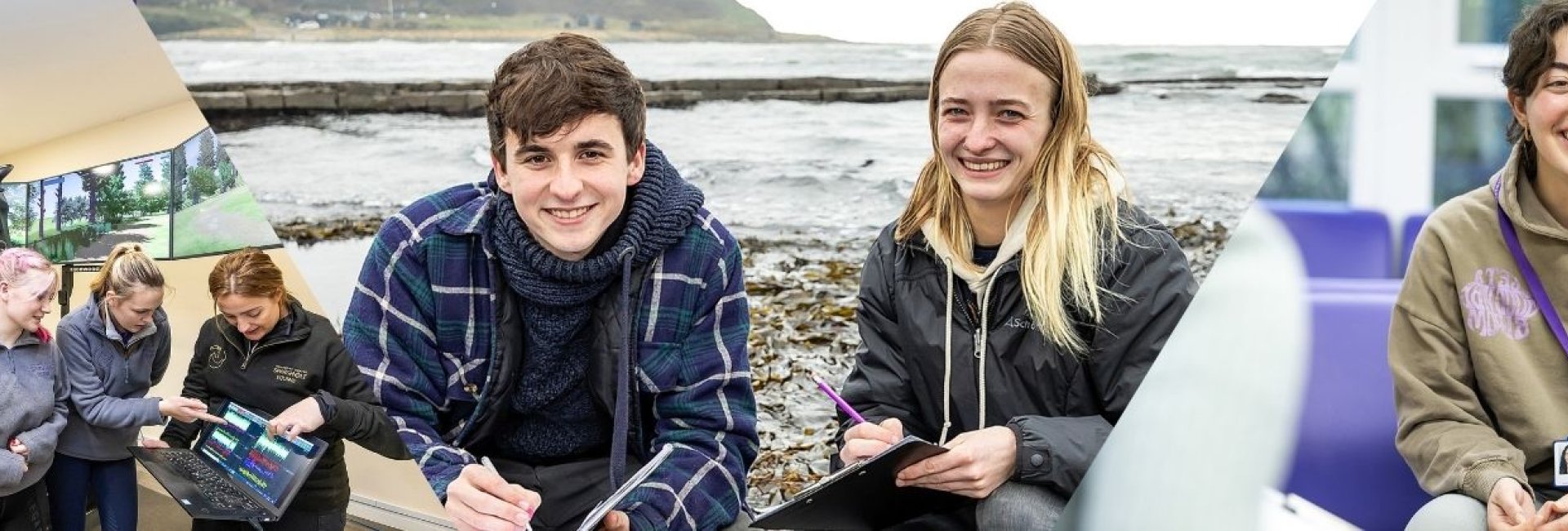University Centre Sparsholt - Open Event
12 Jun 2025, 17:30
Winchester


WHY CHOOSE THIS DEGREE?
Benefit from the largest collection of animals in a UK college in our BIAZA-member centre
Develop expertise, data analysis and research skills and use them in your dissertation project
Be taught by leading industry experts
What makes UCS special?
As a UCS student you will benefit from lecturers with a wealth of industry experience that comes from working with BIAZA and EAZA research committees/ working groups and a wide range of zoos. UCS is also supporting member of the ABTC and staff are members of the Fellowship of Animal Behaviour Clinicians. Our teaching staff have experience and expertise in all areas of animal work including veterinary nursing, health and welfare, research, zoo industry and husbandry and animal behaviour and training.
UCS has an unrivalled collection of animals and species in its purpose-built Animal Health and Welfare Research Centre and was one of the first colleges in the country to be awarded a zoo licence and is part of The National Zoo Academy. The centre offers a wide variety of habitat styles and management systems to maximise the student learning potential and experience.
What will I learn?
Building on a strong science foundation, the course will take your knowledge of zoo management to the next level within an industry-standard environment. You will develop research techniques in aspects of zoo animal welfare, behaviour and population management, as well as considering the wider roles of the modern zoo such as visitor learning.
The course promotes the idea of evidence based husbandry as a fundamental feature of contemporary zoo biology and combines practical research skills, husbandry techniques and vital management skills. There is also a strong data analysis theme to prepare you for and support you in your dissertation research.
How will I be assessed?
Assessment is primarily coursework based, comprising practical portfolios, case studies, seminars, reports and essays. This is supplemented in some modules by an exam.
Where can I go from here?
You can progress to the MSc in Applied Zoo Biology at University Centre Sparsholt; alternatively there are many MSc and PhD programmes available at other universities. Sparsholt graduates now work in a variety of roles in the zoo and conservation sectors, while others have continued in education to postgraduate level.
• LEVEL 6
• Dissertation
• Further Statistics
• Professional Industrial Development
• Applied Zoo Animal Behaviour
• Conservation Biology
• Wild Animal Veterinary Science
Assessment is primarily coursework based, comprising practical portfolios, case studies, seminars, reports and essays. This is supplemented in many units by an exam.
To work as a teacher at a state school in England or Wales, you will need to achieve qualified teacher status (QTS). This is offered on this course for the following level:

Learn what it's like to study at University Centre Sparsholt. From key stats to campus highlights, open days, and more - find everything you need to know here.
The following entry points are available for this course:
We welcome applications from international students. For further details on the English language requirements, visa requirements and student life, please see our website https://www.sparsholt.ac.uk/international/.
Diploma of Higher Education, FdSc or HND in a relevant subject, plus GCSE Maths and English at grade C/4 or above (or level 2 equivalents).
| Test | Grade | Additional details |
|---|---|---|
| IELTS (Academic) | 6 | Overall score of 6.0 with minimum scores of 5.5 in any of Speaking, Reading, Writing and Listening (CEFR B2) www.ielts.org/about-ielts/ielts-for-migration/united-kingdom |
| Trinity ISE | Pass | Pass in each of Speaking, Reading, Writing and Listening (CEFR B2) www.trinitycollege.com/qualifications/SELT/UKVI |
| PTE Academic | 60 | Minimum score of 60 or higher in each of Speaking, Reading, Writing and Listening (CEFR B2) www.pearsonpte.com/selt-tests/pte-academic-ukvi |
Please email degree-enquiries@sparsholt.ac.uk for details https://www.sparsholt.ac.uk/international/english-language-requirements/
This section shows the range of grades students were previously accepted with - learn more. It is designed to support your research but does not guarantee whether you will or won't get a place. Admissions teams consider various factors, including interviews, subject requirements, and entrance tests. Check all course entry requirements for eligibility.
We are unable to show previous accepted grades for this course. This could be because the course is new, it's a postgraduate course, there isn't enough historical data, or the provider has opted out of sharing their entry grades data for this course - learn more.
| Location | Fee | Year |
|---|---|---|
| Republic of Ireland | £9250 | Whole course |
| EU | £9800 | Whole course |
| England | £9250 | Whole course |
| Northern Ireland | £9250 | Whole course |
| Scotland | £9250 | Whole course |
| Wales | £9250 | Whole course |
| International | £9800 | Whole course |
| Channel Islands | £9800 | Whole course |
Tuition fee status depends on a number of criteria and varies according to where in the UK you will study. For further guidance on the criteria for home or overseas tuition fees, please refer to the UKCISA website.
www.sparsholt.ac.uk/university-centre/additional-costs/
If your household income is under £32,960 you could receive a bursary of up to £750 per annum. This can be used to help towards travel costs, books and equipment or anything else that will help you during your course.
Depending on the financial information disclosed in your Student Loan application, UCS may make an automatic bursary award based on specific criteria as set out in our Access and Participation Plan. If this is not the case you may still be able to apply for financial support to the UCS HE Hardship fund by completing a Bursary Application Form (available from end of |Term 1).
For more information please hebursary@sparsholt.ac.uk.
Sparsholt
Winchester
SO21 2NF
Visit our website Visit our course page
Email:degrees@sparsholt.ac.uk